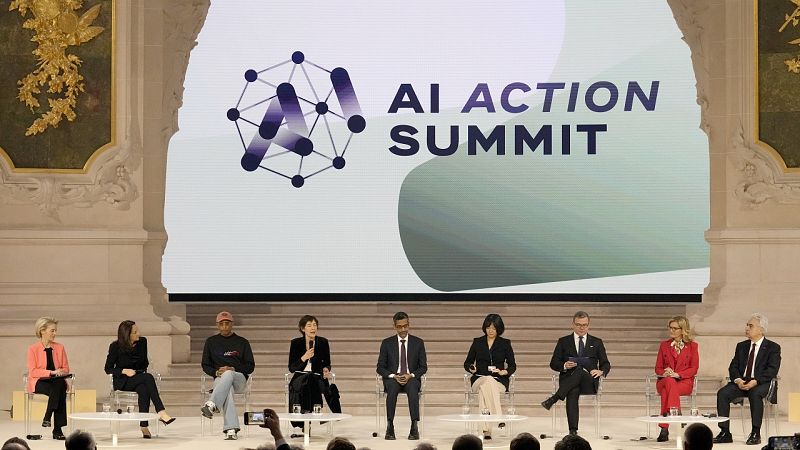
Re-opening the AI Act or delaying its rules from entering into force would undermine key accountability mechanisms, over 50 organisations – including Access Now, Centre for Democracy and Technology Europe (CDT) and the European Consumer Organisation (BEUC) – warned EU Technology Commissioner Henna Virkkunen in a letter on Wednesday.
The document expresses concern for the “growing pressure regarding a potential 'stop the clock' mechanism to suspend or delay the implementation and enforcement of the AI Act.”
“The EU 'simplification' agenda should not be used to drive deregulation, especially in the absence of credible evidence that this would be necessary or effective,” the letter says, adding that EU rules are based on fundamental values and principles, “efforts to simplify should build on hard-won legal protections, not dismantle them.”
The move comes following calls earlier this month by CEOs from more than 40 European companies including ASML, Philips, Siemens and Mistral, for the Commission to impose a “two-year clock-stop” on the AI Act before key obligations enter into force this August.
They said that the delay was “both for reasonable implementation by companies, and for further simplification of the new rules.”
Grace period
The AI Act – rules that regulate artificial intelligence systems according to the risk they pose to society – entered into force in August 2024, but will fully apply in 2027.
The companies called for a pause on obligations on high-risk AI systems, due to take effect as of August 2026, and to obligations for general-purpose AI models (GPAI), due to enter into force as of August 2025.
Meanwhile the Code of Practice on GPAI, a voluntary set of rules aiming to help providers of AI models, such as ChatGPT and Gemini, comply with the AI Act, has still not been produced.
The draft - written by experts appointed by the Commission - is now expected in July. Companies claim they do not have enough time to comply before the rules kick in this August, and have asked for a grace period.
Thomas Regnier, the Commission spokesperson on digital, told Euronews that what is being discussed in the context of the AI Board is "the timing to implement the Code of Practice, with the end of 2025 being considered."
"This would be well ahead of the AI Act's enforcement deadlines - 2026 for new models and 2027 for existing models," he added.
The process has been criticised since Commission-appointed experts started drafting the rules in September 2024. Tech giants as well as publishers and rights-holders are concerned that the rules violate the EU’s Copyright laws, and restrict innovation.







